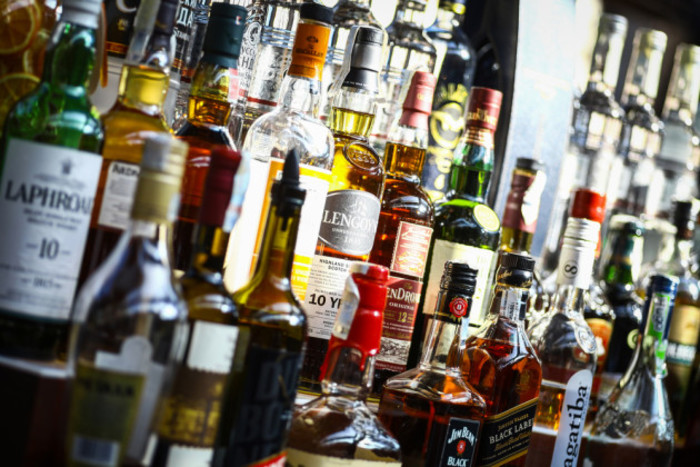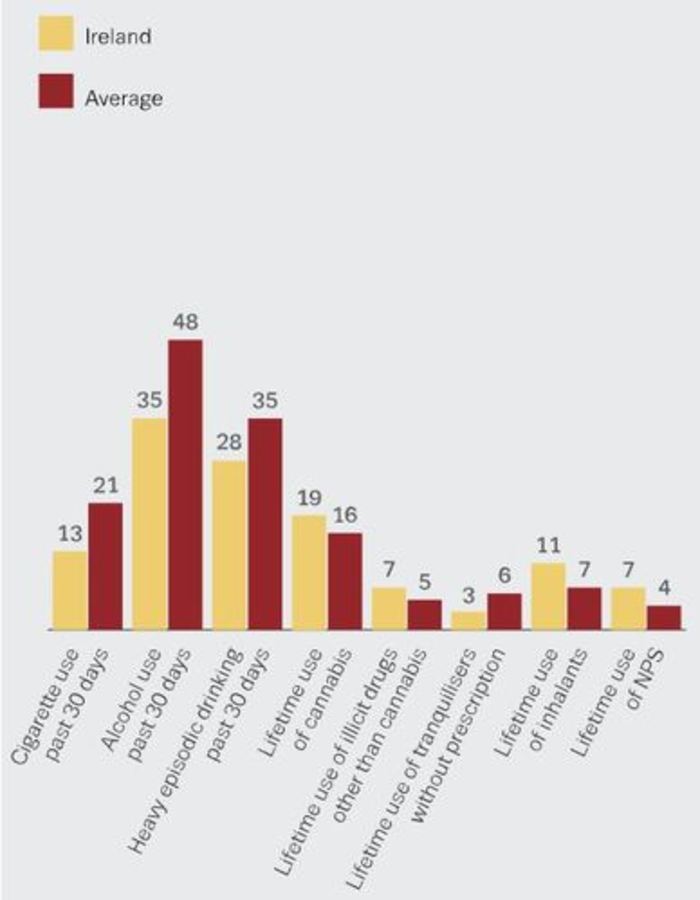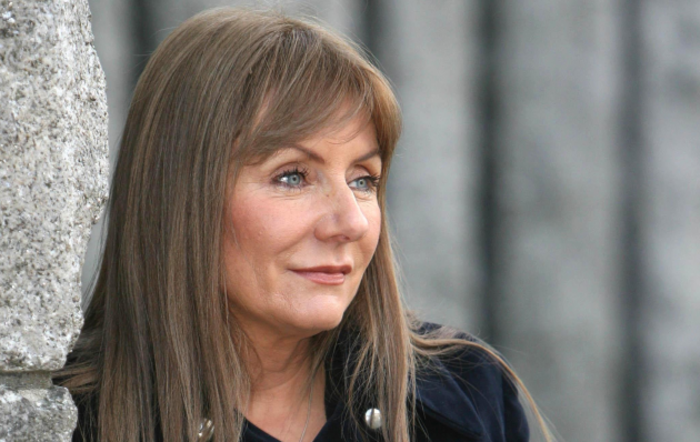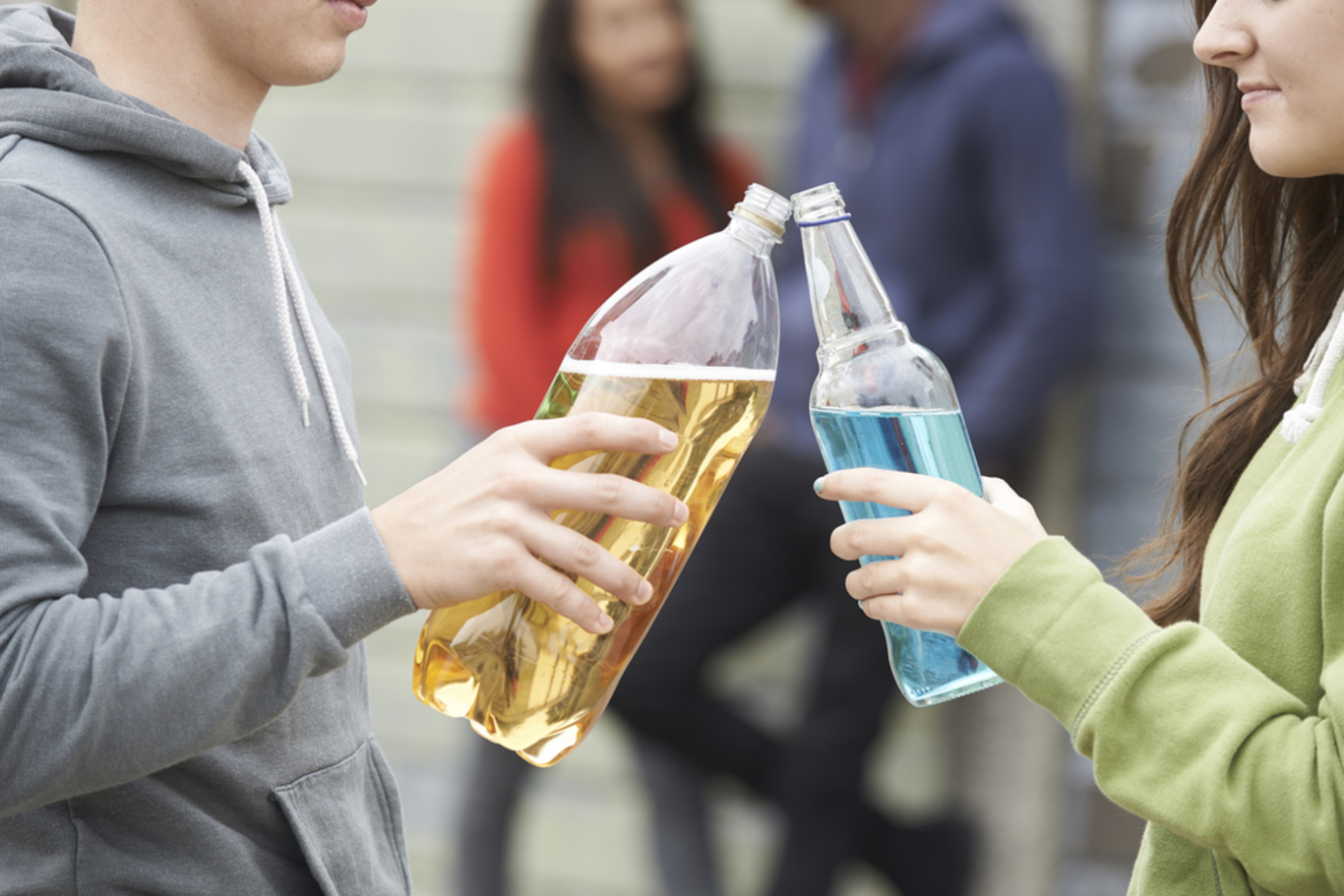The behind-the-scenes machinations shaping the government's new alcohol laws
Industry groups are stepping up their lobbying ahead of the wide-reaching bill.
THE PUBLIC HEALTH (Alcohol) Bill was published by then-minister for health Leo Varadkar in December 2015, looking to introduce wide-ranging measures to reduce alcohol-related harm in Ireland.
One key aspect of the legislation relates to how alcohol can be advertised in shops, on billboards and at sporting events.
While the bill has cross-party support, a number of changes were recommended after it was debated at committee stage – with many politicians since revealing the heavy lobbying various interested parties have been carrying out before it gets signed into law.
Advertising
Some of the restrictions included in the bill relate to advertising in public spaces, at events and in media outlets.
Ads promoting alcohol would be prohibited in or on public service vehicles, at bus stops and in or at a train or bus station. Outdoor advertising within 200m of a school or playground would also be banned.
At the committee stage – which followed an earlier Dáil debate - it was proposed that the following line was also inserted: “Advertising, indirect advertising and other sales promotion of an alcohol product is prohibited if it is carried out or aimed at the general public in public places.”
It was also proposed that alcohol sponsorship of sport would be phased out by the end of 2023, and that sponsorship of any event aimed at children also be banned.
Another amendment related to the broadcast watershed for alcohol advertising, which would be banned on TV before 9pm and from radio at all times other than between the hours of 10am and 3pm on weekdays.
A spokesperson for Alcohol Action Ireland told TheJournal.ie that advertising restrictions alone will not solve the public health crisis stemming from alcohol, all measures in the legislation “are designed to work together to help create an environment that supports or empowers people to make healthier choices in relation to their alcohol consumption”.
Drinks producers, however, have claimed that the advertising restrictions will effectively freeze them out from the majority of all outdoor advertising space in major cities in Ireland.
The Alcohol Beverage Federation of Ireland (ABFI) says that the restrictions are “disproportionate” – and that they won’t work.

The body, which represents brewers, distillers, brand owners and distributors in Ireland, has also warned that the move will have negative consequences across a variety of sectors, claiming the watershed rule will have “huge financial implications for domestic broadcasters”.
ABFI director Ross Mac Mathúna said: “We would like to see the sensible implementation of the bill, however the proposed measures are not fit for purpose and will result in unintended consequences.”
The group claims that less than 12% of the outdoor advertising space in greater Dublin, Cork and Limerick would be available for alcohol ads under the bill. However Alcohol Action Ireland said there was a lack of evidence to substantiate the claim.
The anti-alcohol lobby group added that the alcohol industry was not “primarily concerned with ‘unintended consequences’ of this legislation, but the intended consequence” – a reduction in consumption.
Alcohol and children
For its part, the ABFI says that the restrictions on advertising will have little benefit on the issue of underage drinking.
Countries such as France have banned advertising at sporting events and have implemented content restrictions on other alcohol-related advertising, but the business body argues that research indicated the measures weren’t effective.
Data published in 2013 showed that there was an increase in the number of underage drinkers consuming alcohol regularly in France, but that it was not directly linked to advertising.
Mac Mathúna said: “We are concerned about the proposed advertising restrictions given the lack of clear evidence that these measures will address the misuse of alcohol. Underage consumption (in Ireland) is declining.”
According to a recent European-wide survey on alcohol use among teenagers, Ireland was found to be below average for alcohol use in a number of categories, including regular consumption.
One category, however, where Ireland did not perform well was the share of teenagers who had been drunk in the previous 30 days, and the average alcohol intake on the last day that they drank.
 Percentage of prevalence, Irish teenagers versus European average
Percentage of prevalence, Irish teenagers versus European average
The Alcohol Action Ireland spokesperson said: “Children are continuously exposed to positive, risk-free images of alcohol and its use, which are far removed from the reality of the situation.
“Restricting advertisements for alcohol products to content about the nature of those products will mean that advertisements will be less likely to glamourise alcohol or make it appealing to children.”
According to research carried out at the Health Promotion Research Centre at NUI Galway, over 90% of children reported that they were exposed to traditional, or offline, alcohol advertisements in the week prior to the study being carried out.
Dr Michal Molcho at NUI Galway said: “Given that these findings echo previous studies, coupled with the vulnerability of young people to alcohol, there is a clear need for immediate action on alcohol marketing regulation.”
The ABFI, however, said: ”The drinks industry in Ireland abides, in the strictest manner, to all codes relating to advertising and marketing.”
Lobbying
As amendments to the legislation were under review by members of the Seanad, several aired their frustrations about the amount of lobbying taking place from industry behind the scenes.
Independent senator Frances Black told the house in November: “I am shocked by the amount of lobbying.
“I have seen it with my own eyes. I saw seven people from the industry standing around one deputy in the coffee dock some days ago and I was absolutely horrified.”
 Independent senator Frances Black
Independent senator Frances Black
Senator David Norris also drew attention to the issue. He said: “Multinational corporations have been carrying out extensive lobbying of members of this house. Sometimes, they are clever in how they conceal their origins referring to ‘responsible drinkers’ and all of that rubbish.
“No one believes it. They have stopped lobbying me because I used to send material back and tell them that I did not believe them.
Fine Gael senator Catherine Noone expressed her fears that the advertising industry would begin to lobby members to reduce to the effect of the bill.
She said: “My concern is that the advertising industry will start to lobby us to reduce the effect the bill will have on its industry.
“If there is to be any reduction or removal of measures in the legislation, I hope it will not be a precedent for other industries to start lobbying us. I believe this is only the start of it.”
By law, lobbyists are required to disclose who they are lobbying and what they are lobbying about. In the case of the Public Health (Alcohol) Bill, it is section 20 that has led to a great number of lobbying attempts.
Section 20 concerns the “structural separation” of alcohol products for sale in shops and supermarkets. In practice, it will mean the erection of a physical barrier to separate alcohol from other products in shops.
On the register of lobbyists, it can be seen that shop owners have been keen to get this part of the bill amended.
Blue Silver Merchants, trading as McInerney’s SuperValu Loughrea, published details on 17 January that they had phone three local TDs on the issue.
The intended results of this lobbying was to “avoid the expenditure of €45,000 in our store in order to comply with proposed legislative changes to prevent alcohol from being visible to our customers”.
A Centra store in Sligo held a meeting with three local TDs seeking the “elimination of the requirement for structural separation”. Other recorded instances of lobbying politicians on this piece of the legislation can be found here, here and here.
The issue almost caused a rift between Fine Gael and the Independent Alliance in November.
The bill instructs that alcohol must be separated from the other products on sale in the shop by a physical barrier so that alcohol products and advertising are not readily visible to members of the public.
Plans to force small retailers and corner shop owners to segregate alcohol products was a “step too far”, according to the Independent Alliance.
Minister of State Sean Canney described the section of the bill as “a retrograde step” and said it is simply “inoperable”.
“Segregation like this will add nothing to the control of drinking. I am fearful of the fact that this legislation could drive drink further underground and make drink an even less sociable pastime,” he said.
Unlike other disagreements between the Independent Alliance and Fine Gael, this time they might muster some support from government backbenchers.
Several Fine Gael TDs have raised concerns about the impacts the measures will have on small corner shops.
At a previous parliamentary party meeting in October, there was a heated discussion about the new bill, with rural TDs raising the same concerns as members of the Independent Alliance. Many stated it would be a non-runner for their constituents.
Written by Sean Murray and posted on TheJournal.ie






